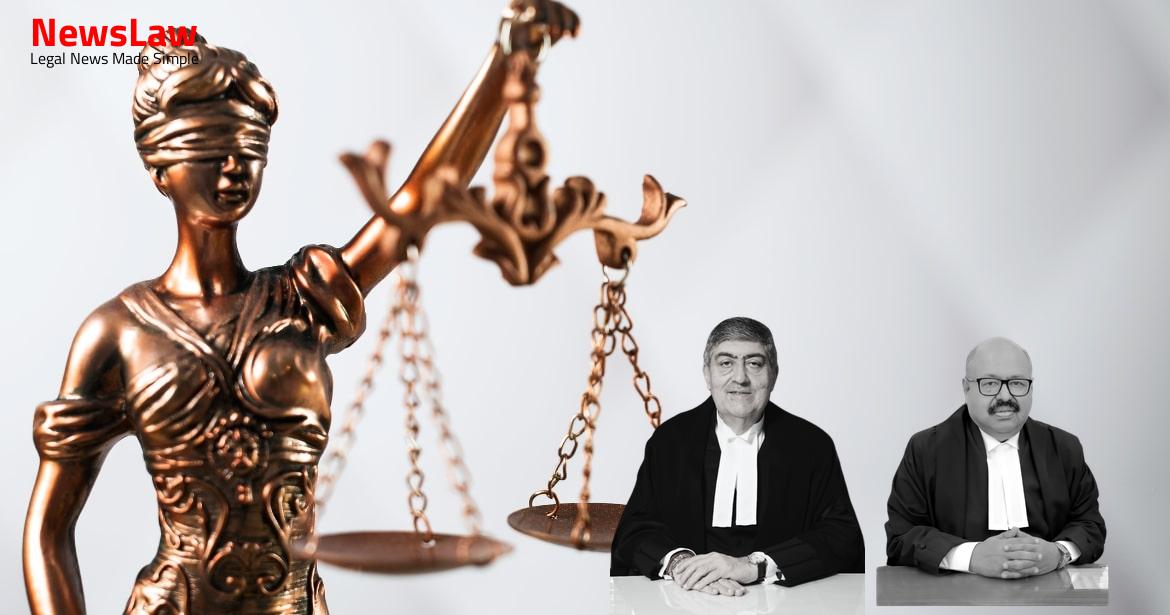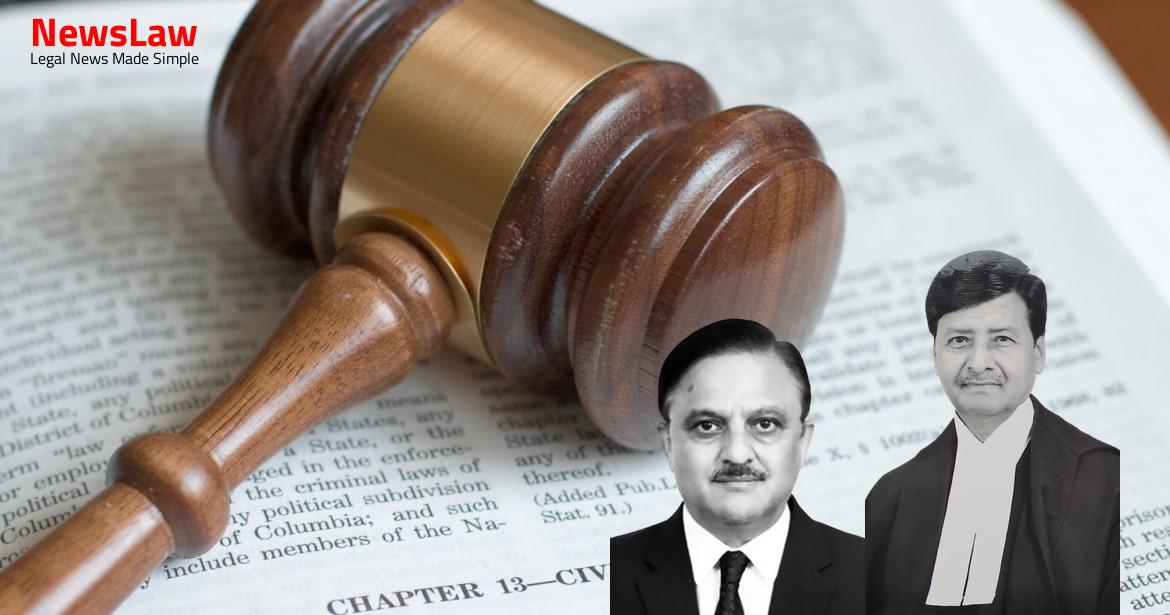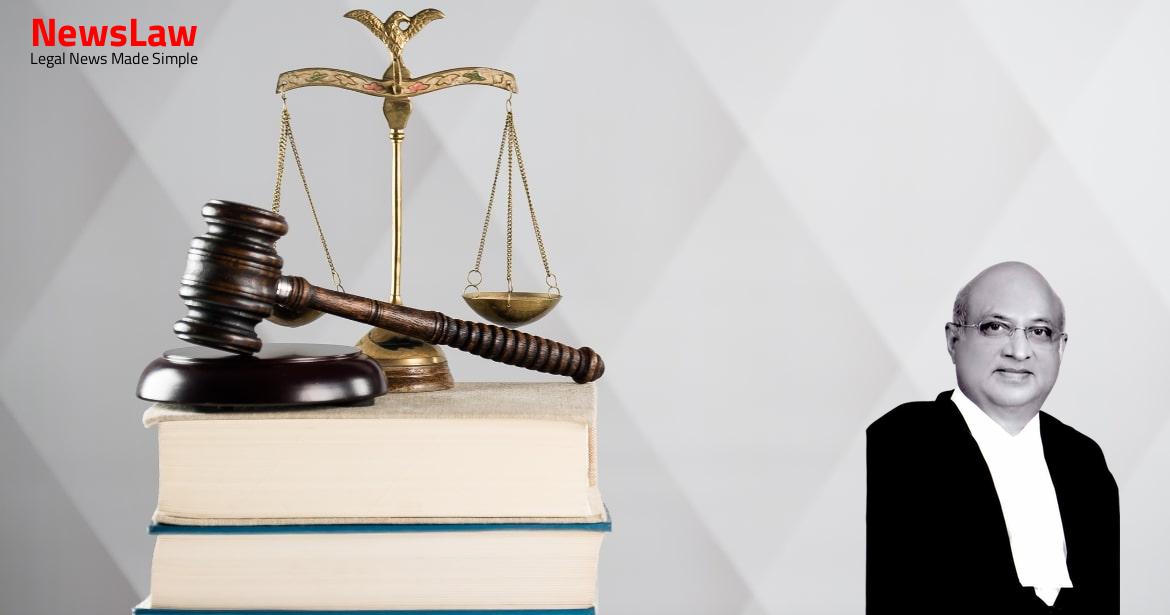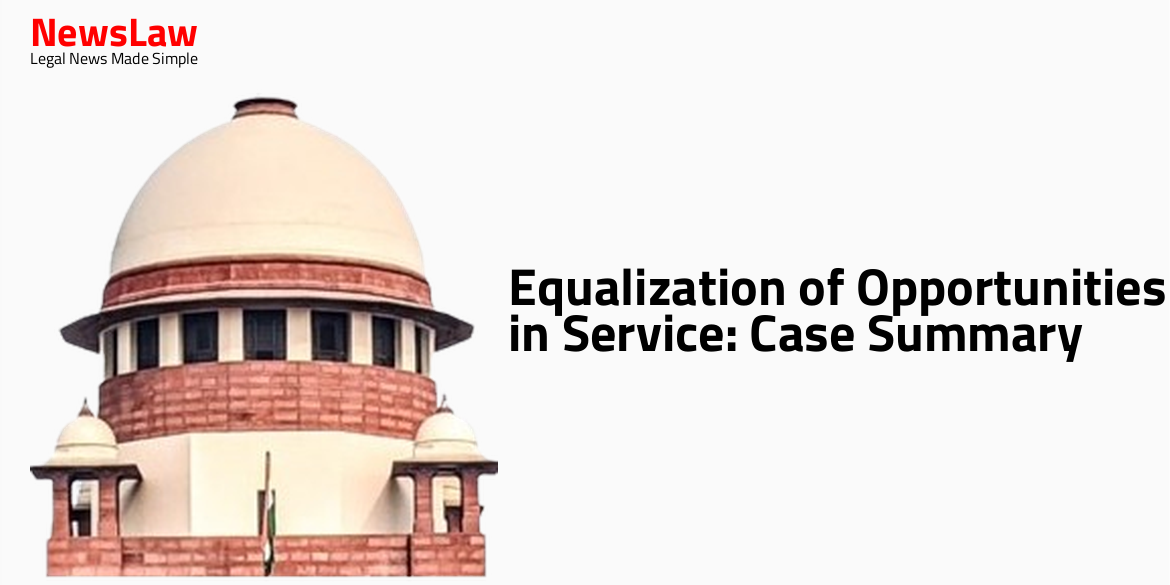In a recent case regarding retirement age for medical professionals, the court’s legal analysis focused on upholding the principle of ‘No work should go unpaid’. The court emphasized that an incumbent is entitled to salary for service rendered, and denial of pay amounts to forced labor. This summary explores the legal nuances of the court’s decision in ensuring fair remuneration for employees.
Facts
- The High Court of Delhi upheld the Tribunal’s decision in favor of ayurvedic doctors, allowing them to serve until 65 years like allopathic doctors.
- The Tribunal’s decision was based on a previous judgment in Dr. Santosh Sharma’s case.
- Interim orders were passed allowing ayurvedic doctors to continue working without receiving salary until final judgment.
- The Tribunal found discrimination between ayurvedic and allopathic doctors in terms of retirement age and granted extended superannuation age benefits to ayurvedic doctors.
- Writ Petitions filed by the NDMC against the Tribunal’s decision were dismissed by the High Court of Delhi.
- The High Court highlighted the case of Dr. Pratibha Sharma under EDMC, whose employer did not adopt the decision to enhance retirement age for AYUSH doctors.
- The Court left it to EDMC to decide on Dr. Pratibha Sharma’s case accordingly.
- Government order dated 31.05.2016 enhanced the retirement age to 65 years for specialists of CHS and GDMOs.
- Ministry of Health and Family Welfare clarified applicability of the order to GDMOs of CHS, leaving other organizations to decide.
- Ayurvedic doctors were not initially covered by the order of 31.05.2016.
- Several ayurvedic doctors filed Original Applications before the Tribunal seeking to continue in service until 65 years.
- The Tribunal directed that the applicants could continue in service beyond the retirement age until further orders.
Also Read: Insurance Claim Repudiation due to Fire Incident: Court’s Legal Analysis
Arguments
- The benefit of enhanced retirement age should have been extended only from September 2017 as per the AYUSH Ministry’s decision.
- The appellants cannot deny remuneration and unpaid arrears to the respondent doctors based on the principle ‘Actus Curiae Neminem Gravabit.’
- The financial burden on the employer should not be used to deny the unpaid arrears to the respondent doctors.
- Argument based on the judgment in U. P. State Brasswar Corporation Ltd. and Anr. vs Uday Narain Pandey regarding back wages determination is not applicable as the factual matrix is different.
- Paying arrear unpaid wages to the respondent doctors is a legal obligation of the State and denying it would violate their constitutional rights under Articles 14, 21, and 23.
- The case of Dr. H. P. Singh, where it is claimed he did not work after superannuation, is presented as an individual instance.
Analysis
- Employers are responsible for paying wages to productive employees serving under them.
- The principle of ‘No Work, No Pay’ protects employers from paying employees if they do not receive service from them.
- An incumbent is entitled to salary for the service rendered and cannot be deprived of it.
- Denial of pay for service rendered amounts to forced labor, which is impermissible.
- The court does not give retrospective application to government orders affecting employees’ rights.
- The principle of ‘Actus Curiae neminem gravabit’ (the act of the court shall prejudice no one) is applicable in such cases.
- Undeserved or unfair advantage gained through litigation must be neutralized by the court.
- The interim order of the Delhi High Court cannot be used as a basis to deny salary and arrear benefits to respondents.
- The Allahabad High Court retrospectively applied the U.P. State Government order dated 30 September 2012 from 29 June 2002.
- There are factual differences making the previous case inapplicable to the present appeals.
- Arrears of salary were denied to respondent-employees in a previous case as they did not work after retiring.
- However, in the present case, respondent-doctors have been working continuously after an interim court order.
- The interim order merged with the final judgment, entitling the respondents to all consequential benefits.
- The respondents have been serving patients without remuneration for almost 5 years.
- The principle of ‘No work should go unpaid’ should be applied as the doctors’ services have been beneficial to both patients and the employer.
- A notification issued on 31.05.2016 in the present case was swiftly implemented.
- Employers cannot use ‘No Work, No Pay’ principle if they obstruct the employee from discharging their service.
- The employer hindered the respondent-doctor from being re-appointed despite the doctor’s efforts through representations.
- It is clear that the respondents are entitled to receive their lawful remuneration, including arrears and current pay.
Case Title: NORTH DELHI MUNICIPAL CORPORATION Vs. RAM NARESH SHARMA (2021 INSC 376)
Case Number: C.A. No.-004578-004578 / 2021



